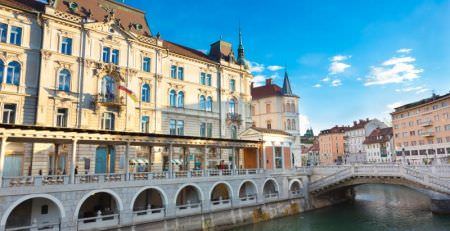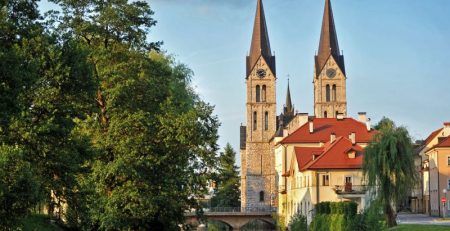Who is non-resident taxpayer?
A person is a non-resident taxpayer if he does not have an official registered place of residence or center of his personal and economic interests in Slovenia. Non-resident taxpayer is also a person who is in a tax year present in Slovenia for less than 183 days, explained the Financial Administration of the Republic of Slovenia (Furs).
Like non-resident taypayer, also resident taxpayers have to pay personal income tax. The difference is as follows:
- Residents of Slovenia are persons who are liable to pay income tax on all income, regardless of the location (they have a source in Slovenia or outside Slovenia).
- Non-residents of Slovenia have to pay personal income tax only from income earned in Slovenia.
>> Are you interested in company registration in Slovenia? Our company offers full business support also to those who already have a company in Slovenia!
Payment of personal income tax for non-resident taxpayers
All payments to foreign natural persons are subject to personal income tax already during the year. Tax residents must submit an annual tax return for assessing personal income tax if they do not receive an informative calculation. On the other hand, non-resident taxpayer does not submit an annual tax return for assessing personal income tax. The advance payment of personal income tax is considered a definitive tax.
In addition, non-resident taxpayer is liable to personal income tax by certain rates and not by progressive, as is the case with residents, and in principle is not eligible for tax deductions and reductions.
Arriving in Slovenia for work
If a person comes to Slovenia for the purpose of performing a job, he/she must obtain a tax number for the purpose of receiving or paying income, Furs warns. To do this, you have to fill-out a special form DR-02.
At Furs, they explain that a person who only lives for a short time in Slovenia, that is less than 6 months, throughout the stay, is considered as non-resident taxpayer of Slovenia. At the same time he remains a resident of the country where he was working or living before.
If, however, the person in Slovenia will establish important resident relations (register residence or have center of interests) before the expiration of a period of six months, he can already be considered a Slovenian resident. In these cases, the person must also submit the application at Furs. After six months, it is important for a person to register as resident.
Furs can issue to the non-residents a certificate of paid tax in Slovenia for each tax year. You may need this certificate, for example, to claim a deduction of tax paid in Slovenia or exempt from tax in the country where they are resident.
Non-resident taxpayer has some benefits
Non-resident taxpayers also have some advantages derived from international double taxation treaties. Namely:
- non-taxation of income in the country of source (Slovenia). Because according to the international act, the right to tax is granted only to the country of the recipient of the income
- Taxation in the country of source (Slovenia) at a lower rate. This usually occurs in three types of income – dividends, interest and property rights. The rate ranges between 5 and 15 percent
Non-resident taxpayer has two options to claim benefits according to international act:
- reduction or exemption from tax
- refund of overpaid tax
As non-resident taxpayer you can claim tax on the basis of KIDO forms.
In the this manner, the taxpayer who is a double resident can also benefit from the international act. He can do it if he considers to be only a resident of the other Contracting State. In this case, he has to submit a certificate from a foreign tax authority attesting the tax residence.
>> Our company also offers accounting services! If you need help, do not hesitate to contact us!
Payment of social security contributions
Employees in the employment relationship with the employer in Slovenia pay social security contributions in Slovenia irrespective of their resident status. In which cases this occurs, it depends on:
- legislation in this field, which is valid in the Republic of Slovenia
- European Union legislation on social security for workers from EU Member States
- from bilateral international social security contracts for workers from third countries
Contact us!
If you need business support in Slovenia, write us to the e-mail data@data.si or call us at tel. number 00 386 1 6006 270 or Viber 00 386 40 530 718. We also suggest you visit our Facebook page.














Leave a Reply
You must be logged in to post a comment.